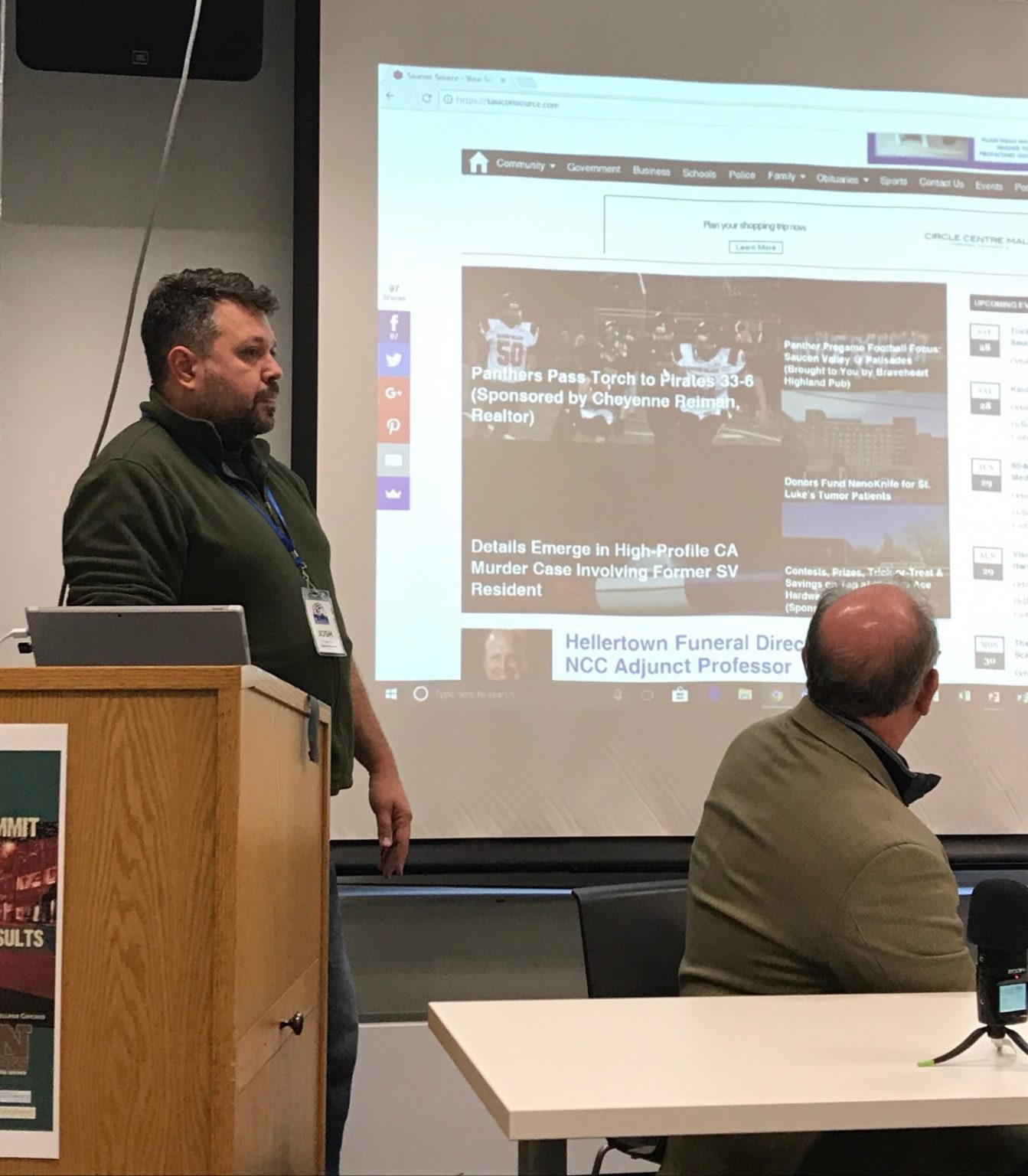Ample opportunities to monetize sports coverage, local online news publishers say
Readers in Saucon Valley in eastern Pennsylvania love their sports, so it was natural for the Saucon Source to monetize

Readers in Saucon Valley in eastern Pennsylvania love their sports, so it was natural for local independent online news site Saucon Source to monetize its coverage of the local athletic scene.
“Sports are something everybody pretty much agrees on,” Saucon Source publisher Josh Popichak said Oct. 28, the final day of the 2017 LION Summit in Chicago, the country's largest gathering of local independent online news organizations. “Even if someone’s not a superfan, they’re gonna get a warm fuzzy seeing that the (Saucon Valley High School) Panthers won. You can’t put a price on that — how it benefits you, how it benefits the community.”
The Saucon Source bundles sponsorships of sports stories with display ads throughout a season for a number of different sports teams. The publication leverages a handful of stringers to assist with coverage and targets potential advertisers who are enthusiastic boosters.
Popichak’s case study is just one example of how a hyper-local online publisher can monetize sports coverage. BIGR Media co-owner and CEO Steve Ludwig discussed BIGR’s burgeoning network of online websites in middle Tennessee, and how his patchwork of freelancers cover high school sports in the southern and southeastern suburbs around Nashville.
As dailies and televsion stations shrank their coverage areas due to budget constraints, BIGR has filled the vacuum with websites such as TNhighschoolfootball.com, the Williamson Source and the Rutherford Source. Ludwig employed traditional stringers, as well as mothers of students — the “Team Moms” program — to write stories and provide score updates.
Team Moms don’t even get paid — they receive a $25 gift card from Sonic through its partnership with BIGR.
“There will be many moms and dads who want to help,” Ludwig said. “You just have to ask.”
To generate revenue, BIGR Media uses a mix of sponsorships, advertising and social media through products such as printable team schedules, a live gamenight scoreboard, offensive/defensive players of the week and player-of-the-year honors. Ludwig has also partnered with popular local radio personalities and journalists on podcasts and Facebook Live broadcasts.
Some notable lessons-learned include:
– Football is the most popular sport to cover. Publishers should try to sell the whole sports year together.
– Be first with the final score, but don’t give away the result in the headline of the story, forcing readers to click-through to find out what happened.
– Student reporters have been less reliable than the Team Moms network.
– Provide detailed training to Team Mom members, including how to take photographs of sporting events and how to report scores.
– URLs should be different than the headline for SEO purposes.
“We’re a learning organization, we try a lot of stuff,” Ludwig said. “Now that we’re in our fifth or sixth iteration, we’re getting into some learnings that’s accelerating our effectiveness.”
Jeff Wong is the editor and publisher of DC Commute Times in Washington, D.C.
Sign up for the weekly newsletter
Join the LION mailing list to get our weekly roundup of opportunities and resources for news entrepreneurs. View our most recent issues.
Related Articles
BoiseDev’s winning secret to selling newsletter ads: Only local news, only local ads
The site earns 60 percent of its advertising revenue through its high-open-rate email projects, in partnership with local ad agencies.
AI adoption: How Lede AI helps small publishers quickly generate content readers love
Helping news organizations leverage artificial intelligence with a tool that puts their readers and staff first
Social is down, newsletters are up: How audiences are finding LIONs in 2024
Changes to social media and search prompt publishers to shift strategy.
